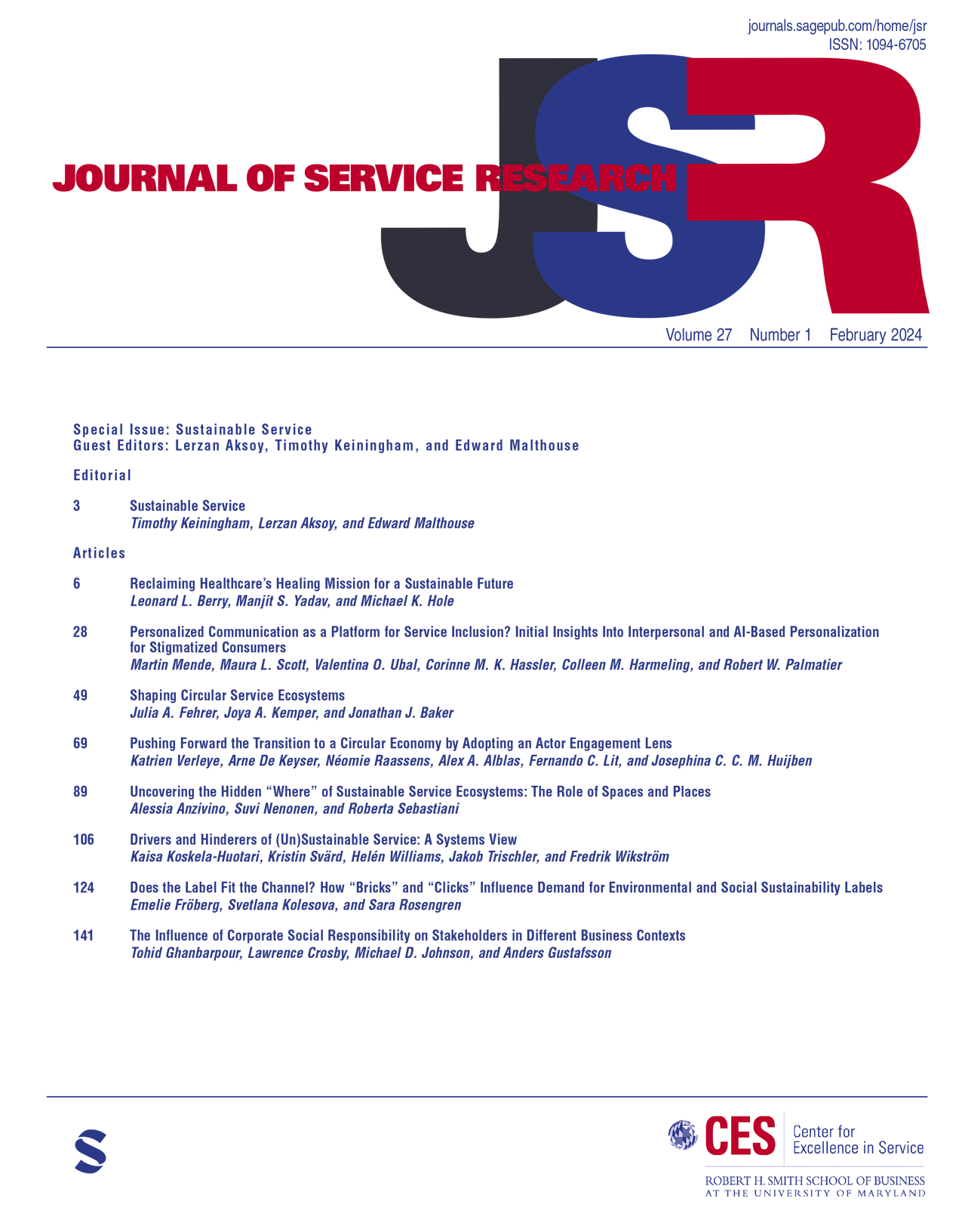Do You Mind if I Ask You a Personal Question? How AI Service Agents Alter Consumer Self-Disclosure
IF 8.6
2区 管理学
Q1 BUSINESS
引用次数: 16
Abstract
The use of Artificial Intelligence (AI) has grown rapidly in the service industry and AI’s emotional capabilities have become an important feature for interacting with customers. The current research examines personal disclosures that occur during consumer interactions with AI and humans in service settings. We found that consumers’ lay beliefs about AI (i.e., a perceived lack of social judgment capability) lead to enhanced disclosure of sensitive personal information to AI (vs. humans). We identify boundaries for this effect such that consumers prefer disclosure to humans over AI in (i) contexts where social support (rather than social judgment) is expected and (ii) contexts where sensitive information will be curated by the agent for social dissemination. In addition, we reveal underlying psychological processes such that the motivation to avoid negative social judgment favors disclosing to AI whereas seeking emotional support favors disclosing to humans. Moreover, we reveal that adding humanlike factors to AI can increase consumer fear of social judgment (reducing disclosure in contexts of social risk) while simultaneously increasing perceived AI capacity for empathy (increasing disclosure in contexts of social support). Taken together, these findings provide theoretical and practical insights into tradeoffs between utilizing AI versus human agents in service contexts.你介意我问你一个私人问题吗?人工智能服务代理如何改变消费者的自我披露
人工智能(AI)在服务业的应用迅速增长,人工智能的情感能力已成为与客户互动的重要特征。目前的研究调查了消费者在服务环境中与人工智能和人类互动时发生的个人信息泄露。我们发现,消费者对人工智能的非专业信念(即认为缺乏社会判断能力)导致敏感个人信息更多地向人工智能披露(与人类相比)。我们确定了这种影响的边界,以便在(i)期望社会支持(而不是社会判断)的环境中,消费者更喜欢人类而不是人工智能的信息披露,以及(ii)敏感信息将由代理管理以进行社会传播的环境。此外,我们揭示了潜在的心理过程,如避免负面社会判断的动机倾向于向人工智能披露,而寻求情感支持的动机倾向于向人类披露。此外,我们发现,在人工智能中添加类人因素可以增加消费者对社会判断的恐惧(减少社会风险背景下的披露),同时增加人工智能的同理心能力(增加社会支持背景下的披露)。综上所述,这些发现为在服务环境中使用人工智能与人类代理之间的权衡提供了理论和实践见解。
本文章由计算机程序翻译,如有差异,请以英文原文为准。
求助全文
约1分钟内获得全文
求助全文
来源期刊

Journal of Service Research
BUSINESS-
CiteScore
20.30
自引率
6.50%
发文量
28
期刊介绍:
The Journal of Service Research (JSR) is recognized as the foremost service research journal globally. It is an indispensable resource for staying updated on the latest advancements in service research. With its accessible and applicable approach, JSR equips readers with the essential knowledge and strategies needed to navigate an increasingly service-oriented economy. Brimming with contributions from esteemed service professionals and scholars, JSR presents a wealth of articles that offer invaluable insights from academia and industry alike.
 求助内容:
求助内容: 应助结果提醒方式:
应助结果提醒方式:


